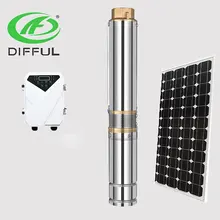Solar panel batteries, also known as photovoltaic (PV) batteries, are devices that store energy generated by solar panels. This stored energy can then be used as a source of power when the sun is not shining, such as at night or on overcast days. Solar power banks are an important component of a solar energy system, as they allow excess energy generated during the day to be stored and used later, rather than being sent back to the grid.
What are the features to look out for in a solar panel battery bank?
Solar panel battery capacity is measured in amp-hours (Ah) or kilowatt-hours (kWh). A battery with a capacity of 100 Ah can store 100 amps of electricity for one hour, or 50 amps of electricity for two hours. Also, most solar power batteries have a voltage of 12V or 24V. The voltage of the battery must match the voltage of the solar panel and the inverter. Another feature to look at is the self-discharge rate. This tells you the rate at which the battery loses its charge when not in use. Also, a battery with a temperature range of -20°C to 50°C can operate safely in temperatures from -20°C to 50°C. Life cycle is another important feature of solar panel batteries.
What are the types of solar power battery?
Lead acid battery is one of the popular solar batteries known for its durability and reliability. These batteries are often used in solar power off-grid systems, as they are able to handle deep discharge cycles and have a relatively low cost. Another type of solar panel battery is the lithium-ion battery. These batteries are becoming increasingly popular due to their high energy density and long lifespan. They are also relatively lightweight, making them a good choice for portable solar systems. However, they are generally more expensive than lead-acid batteries.
What are the advantages of solar charging power bank?
Solar panel battery systems provide a range of benefits, including energy independence, cost savings, reliability, and being environmentally friendly. They can generate their own electricity, reducing dependence on the grid, and can save money over time by reducing or eliminating electric bills. Additionally, house solar battery can provide a reliable source of electricity during power outages, and can be used for a variety of applications such as homes, businesses, and remote locations. They also increase home value, have available tax credit and rebates and are low maintenance.





































 浙公网安备 33010002000092号
浙公网安备 33010002000092号 浙B2-20120091-4
浙B2-20120091-4